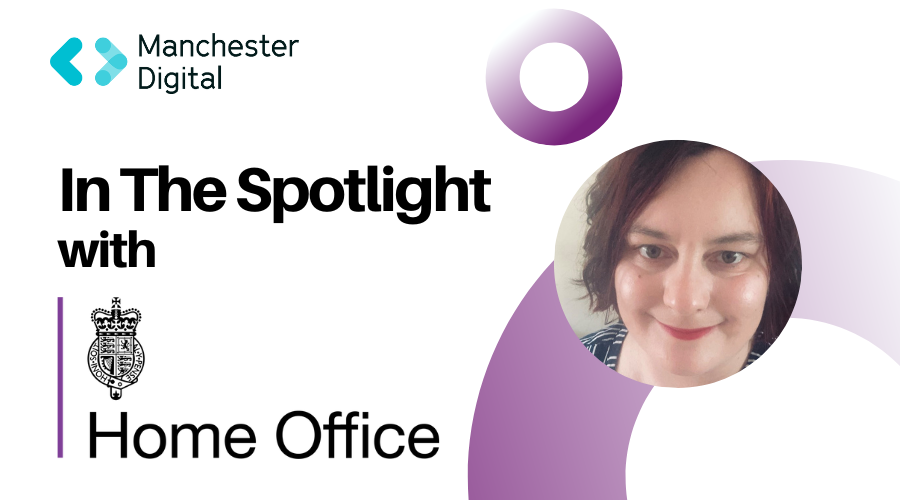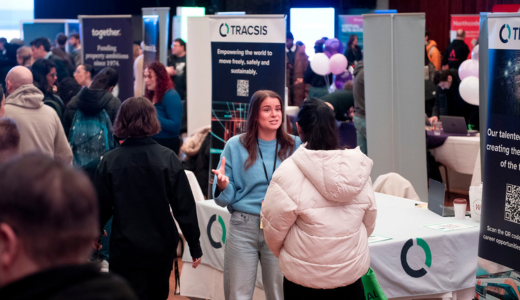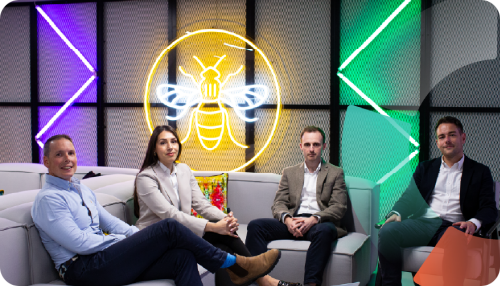
At Manchester Digital, we like to interview our members to find out a bit more about what they do and their work in the Greater Manchester digital and technology sphere. This week we're speaking with Emma Edwards, Project Support Officer at the Home Office.
Manchester Digital is passionate about promoting diversity and inclusion in digital and tech, and champions neurodiversity. We recognise that everyone thinks, behaves and works in their own way, and value the skills, experiences, and contributions of those who are neurodivergent. By embracing neurodiversity, businesses can become change-ready and innovation leaders in their industry.
Emma, a Project Support Officer at the Home Office, shares her experience as a neurodivergent colleague, how the department seeks to support neuro-inclusivity and offers advice to other neurodivergent tech professionals wishing to pursue a career at the Home Office.
Can you describe your role at the Home Office and how your neurodivergent perspective contributes to your work?
As a Project Support Officer, I help ensure the smooth running of projects, using processes, tools, and software to manage day-to-day activities, plan and monitor projects, monitor risks, and manage stakeholder relationships.
I’m autistic and one strength this has granted me is a keen eye for detail – I often notice minute details that other colleagues might not have considered. Whilst it does make some tasks more time-consuming, it does help to ensure accuracy. I’m also good at following specific, embedded processes – if they are sufficiently broken down step-by-step.
Additionally, I’m good at drawing out specifics of a task, such as deadlines and objectives. One of my biggest frustrations is asking when a task needs completing by and being told “as soon as possible”. This can hinder workload prioritisation, taking on more than I can manage which often leads to autistic burnout. I try to draw out these details using Ellie Middleton’s ‘What by When and Why’ framework:
What exactly do you need from me?
When exactly do you need this by?
Why do you need this?
If you want to find out more about accommodating neurodivergence, I implore you to read Ellie Middleton’s book Unmasked – it completely changed my perspective on neurodivergence.
What specific accommodations or support systems has the Home Office implemented that have been helpful for you as a neurodivergent employee?
I’m fortunate in that, as an autistic person with low support needs, I don’t require a substantial number of accommodations to do my job. Usually, the biggest accommodation that managers and colleagues can make for me is an awareness of how my neurodivergence influences my ways of working and stress levels. I’m particularly fortunate that my Line Manager recognises I work more effectively when I can focus on one task at a time. I’ve also found both noise-cancelling headphones and earplugs helpful for blocking out office noise that might overwhelm me (Loop earplugs have been a lifesaver).
That said, my own experiences aren’t necessarily reflective of the wider autistic community. There’s a saying that “Once you’ve met one autistic person, you’ve only met one autistic person”. Since autism is a variable spectrum upon which individuals fall in different places, different autistic individuals will experience different challenges, have unique sensory profiles and will require different accommodations.
How does the Home Office foster an inclusive environment for neurodivergent individuals, and what impact has this had on your work experience?
The Home Office hosts a range of networks for colleagues who fall under protected characteristics and is committed to ongoing diversity and inclusion initiatives. For Neurodiversity Celebration Week this year, the Home Office ran events on how to strengthen our neuro-inclusivity. I was pleasantly surprised to see certain neurodivergent experiences highlighted that I rarely see discussed, including Rejection Sensitive Dysphoria, which is something I have personally struggled with. Whilst previous organisations I have worked with have merely provided lip service to championing neurodivergence, Home Office DDaT are going the extra mile to make neurodivergent staff feel seen, supported, and valued.
Can you share an example of how neurodiversity has led to innovative problem-solving or unique approaches in your team?
Last year at a team gathering, I delivered a workshop on recruiting neurodivergent talent. I addressed myths around neurodivergence, explained the benefits of having neurodivergent colleagues, the challenges they may face and how to support them during the recruitment process. Since this session, our recruitment team has managed to enhance their service offering to neurodivergent individuals applying for roles, ensuring they are able to demonstrate their experience and skills to us in the best way.
What advice would you give to other neurodivergent professionals considering a career in the digital and tech sectors at the Home Office?
Go for it! We need people like you. Your skills and ways of seeing the world are valued and business critical, and DDaT offers many learning and development opportunities.
Although the application process can seem complex, there is plenty of support available. We also provide reasonable adjustments to those who need them. Our panel members undergo rigorous recruitment training and want to help candidates perform at their best!
If you want to find out more about applying for a Digital or Tech role at the Home Office, please reach out to our DDaT Recruitment Accelerator Cells team, who will be more than happy to help!
Thank you Emma!
To find out more about the Home Office Digital Data and Technology, click here.









